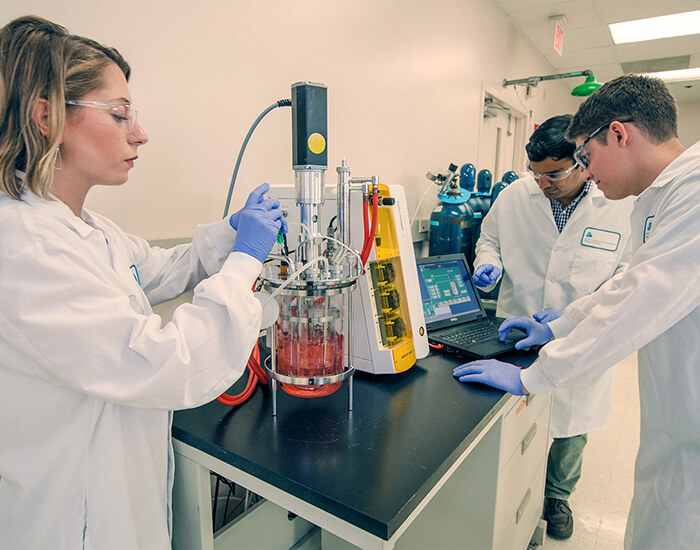Corporate sponsorship of academic research has been around for well over a century but these have focused for the most part on exploiting inventions and technologies that originate from academic institutions. The MIT model of 1861, the Wisconsin Alumni Research Foundation (WARF) model of the 1920s and the specialized technology models of Stanford and Harvard of the 1970s are all good examples of university business models focused on creating additional value from their inventions. Currently industry support for university research in biotechnology is approximately 16 percent of the total university research funding and it is anticipated that in the future the industry role in supporting university research will grow given the present trend of federal government lowering financial support of university research.The Cooperative Awards Student Training (CAST) PhD platform in Bioprocessing at KGI is based on a radically different business model. Instead of focusing on university inventions, academic researchers at KGI's Amgen Bioprocessing Center (ABC) focus on industry invention and new technologies by seeking industry partners that have specific challenges commercializing their discoveries and technologies. KGI's streamlined and IP-friendly process facilitates rapid and very effective project management to allow academics to focus on addressing technical challenges associated with commercializing industry inventions. KGI has been exceptionally successful in the past, for example with its Team Master's Project (TMP) platform. The CAST platform follows a similar format but is intended for PhD projects.
The CAST PhD program brings together KGI resources to provide advanced postgraduate training to selected PhD students. The program is designed specifically to fill the gap between conventional academic research and industry research by providing each successful candidate with an unparalleled opportunity of "real-life" research experience and transferable skills that are essential for a successful career. Each CAST PhD student is supervised by a group of faculty and industry supervisors who are typically PhD trained themselves, and who jointly define the scope of work and guide the student through the project. Students receive in-depth intellectual and hands-on research training at the industry site, while simultaneously working on finding answers to questions that matter to the company partner and the community.
Each CAST PhD project is fully funded by an industry partner to cover major costs including student stipend, tuition, healthcare fees, and insurance and travel costs. Entry into the program is competitive and successful candidates must satisfy KGI's existing requirement for the PhD degree and be able to pass the sponsoring company's rigorous selection process.
This program, which started in 2015 now has four registered students. Two are sponsored by Boehringer Ingelheim and two by BioMarin. Both companies are in Northern California and have been close partners of KGI's Amgen Bioprocessing Center (ABC), whose infrastructure was built through a generous donation by the Amgen Foundation to bring together all the resources necessary to train scientists and engineers for the 21st century biopharmaceutical industry. The four CAST PhD projects, which include design and scale-up of perfusion bioreactors, process analytical technology (PAT), gene therapy and cell line development, are excellent examples of ABC's vision for training in bioprocessing. A fifth project, which is currently in the planning stage, is expected to start in fall of 2016.
